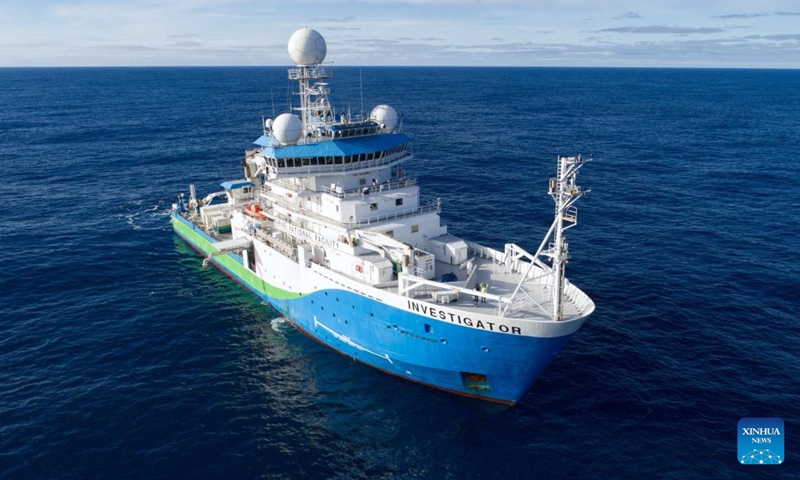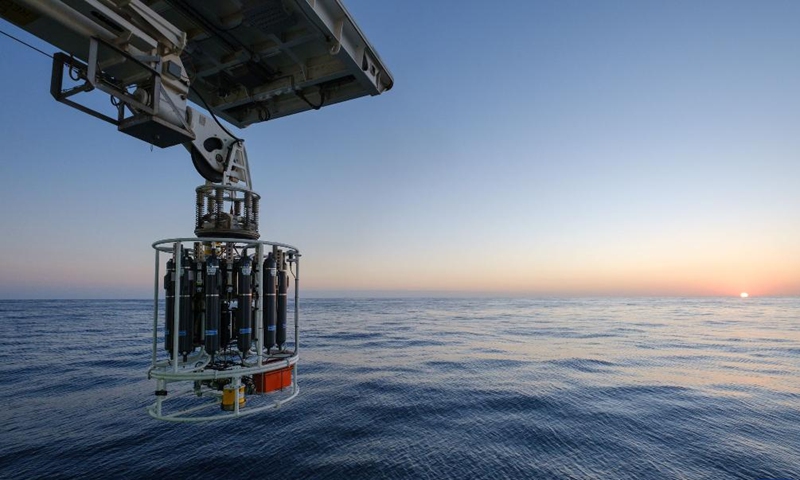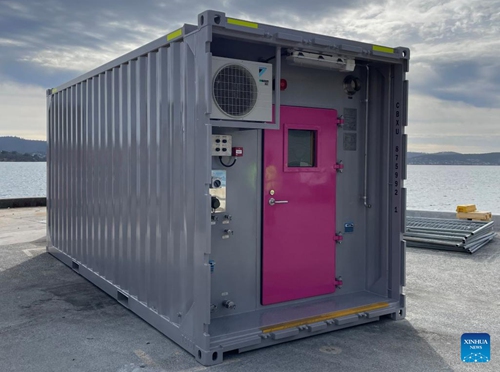
This photo provided by the Commonwealth Scientific and Industrial Research Organisation (CSIRO) on June 5, 2023 shows CSIRO research vessel Investigator for the 14-day International Nutrient Intercomparison Voyage. Ocean chemistry researchers from around the world have joined an Australian voyage to study the Southern Ocean, according to a news release of Australia's Commonwealth Scientific and Industrial Research Organisation (CSIRO) on Monday.(Photo: Xinhua)

This photo provided by the Commonwealth Scientific and Industrial Research Organisation (CSIRO) on June 5, 2023 shows deployment of a CTD (conductivity, temperature, depth) instrument from research vessel Investigator for the 14-day International Nutrient Intercomparison Voyage. Ocean chemistry researchers from around the world have joined an Australian voyage to study the Southern Ocean, according to a news release of Australia's Commonwealth Scientific and Industrial Research Organisation (CSIRO) on Monday.(Photo: Xinhua)

This photo provided by the Commonwealth Scientific and Industrial Research Organisation (CSIRO) on June 5, 2023 shows HydroBox, a containerised chemistry laboratory, to be used for the first time on the 14-day International Nutrient Intercomparison Voyage. Ocean chemistry researchers from around the world have joined an Australian voyage to study the Southern Ocean, according to a news release of Australia's Commonwealth Scientific and Industrial Research Organisation (CSIRO) on Monday.(Photo: Xinhua)
Ocean chemistry researchers from around the world have joined an Australian voyage to study the Southern Ocean, according to a news release of Australia's Commonwealth Scientific and Industrial Research Organisation (CSIRO) on Monday.
The world-first expedition, led by the national science agency, departed for the 14-day International Nutrient Intercomparison Voyage (INIV) on Monday.
Fourteen leading ocean chemistry laboratories from 12 countries are represented on board the CSIRO's research vessel (RV) Investigator, with Chief Scientist Andreas Marouchos describing it as an opportunity to collaborate and share knowledge.
"The voyage offers a unique opportunity for collaboration and cooperation between global ocean chemistry laboratories that collect data to help us monitor the health and productivity of our oceans," he said.
"We'll spend 14 days at sea working side-by-side in an intensive program of ocean sampling to ensure we're all using uniform, best practice approaches in the study of our oceans."
Participating countries in the voyage are Japan, China, South Korea, United States, Britain, Canada, Brazil, Argentina, Spain, Netherlands, France and Australia, according to CSIRO.
Researchers said the Southern Ocean absorbs approximately 40 percent of the carbon dioxide (CO2) produced by human activities and its nutrient-rich waters support vital food webs and productivity.
They will use the Investigator's advanced instruments to collect and analyze over 5,000 seawater samples from depths of up to 6,000 meters to study the ocean's properties and nutrients.
Marouchos said the collected data set would be unique, because winter expeditions in the Southern Ocean were rare due to extreme conditions.
"The data collected on this voyage will also be important in filling a gap in our records, which will allow researchers to better understand how nutrient levels in the Southern Ocean vary at different times of the year," he said.
In addition to conducting research, participants in the voyage will also participate in a series of workshops over the 14 days to share knowledge with their international colleagues.
